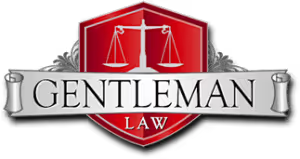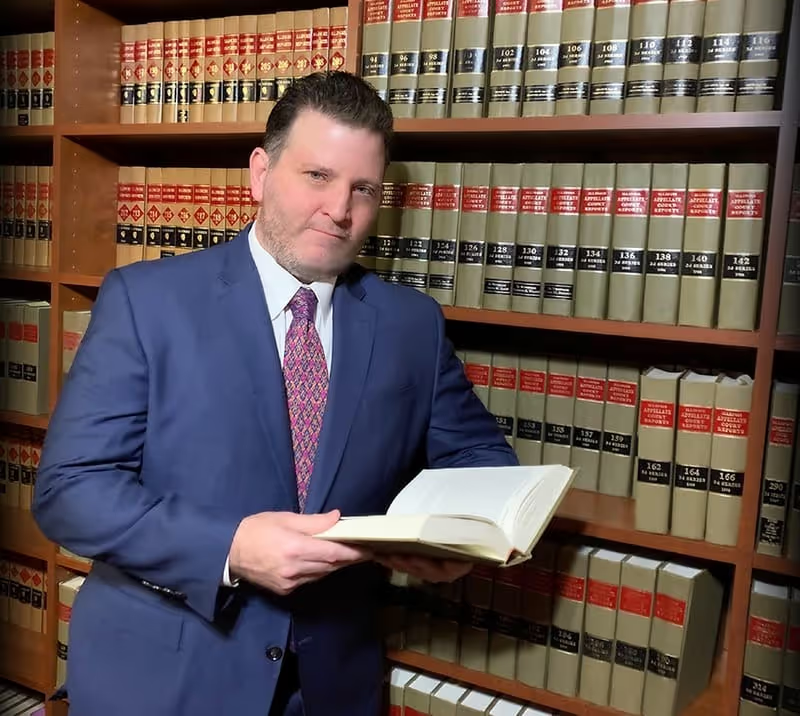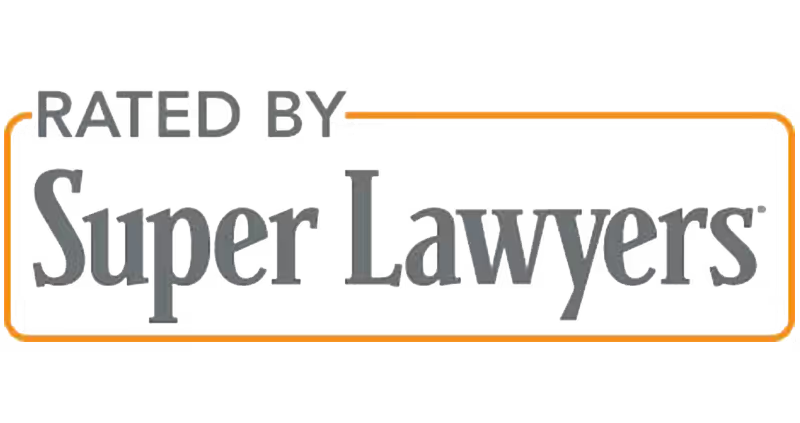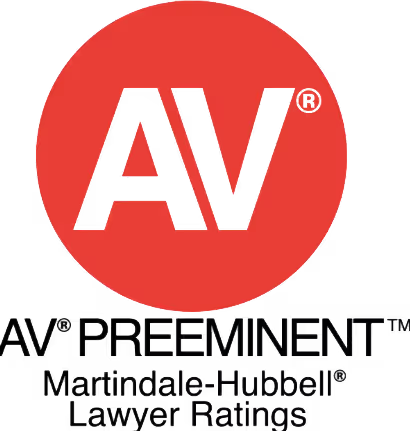Legal Malpractice
For more than 25 years, I have represented hundreds of clients in all types of claims against attorneys. I only represent clients and never represent attorneys or their insurance companies. I have litigated cases on behalf of clients for legal malpractice, breach of fiduciary duty, fee disputes, and numerous other claims against attorneys.
Common questions I address include:
- What is legal malpractice?
- What is legal negligence?
- What's the difference between negligence and non-actionable conduct?
- What can I do if my attorney makes a mistake or loses my case?
- What if my attorney didn't follow my instructions?
- Did my attorney make a mistake?
- What if my attorney overcharged me?
- What constitutes a reasonable attorney fee?
- What types of fee agreements exist?
- How do I find an attorney to sue another attorney?
- Can I sue my attorney?
What Is Legal Malpractice?
Legal malpractice generally refers to any lawsuit by a client against an attorney. In Illinois, claims against attorneys for negligence, breach of fiduciary duty, or overcharging can all be considered legal malpractice.
All attorneys and professionals (doctors, accountants, etc.) must meet a standard of care—the level of professional service expected to ensure clients receive what they paid for. This standard represents the competence and skill professionals must exercise when performing duties, based on practices recognized by their professional community. Attorneys must provide representation on par with what reasonably competent, similarly trained attorneys would provide under the circumstances. When attorneys fail to meet this standard and cause harm, they can be liable for malpractice.
Examples of behavior forming the basis for legal malpractice claims include:
- Missing deadlines
- Inadequate preparation
- Improper document drafting
- Failure to assert viable claims
- Failure to obtain evidence or depose witnesses
- Inadequate discovery
- Failure to properly advise about settlement terms
- Coercing settlement
- Failure to obtain informed consent
- Ignoring client instructions
- Fraud
- Commingling client funds
- Conflicts of interest
- Breach of confidentiality
Legal malpractice suits are civil actions for monetary recovery. Rojo v. Tunick, 2021 IL App (1st) 200191. Complaints may be based in contract or tort, with recovery sought alternatively, as legal malpractice blurs the distinction between these theories.
What Must I Prove to Win a Legal Malpractice Case?
Ordinary negligence principles apply to legal malpractice. Lopez v. Clifford Law Offices, 362 Ill.App.3d 969 (2005). Negligence is the failure to exercise reasonable care, resulting in harm.
To establish legal malpractice in Illinois, clients must prove:
- Attorney-client relationship establishing a duty
- Negligent act or omission breaching that duty
- Proximate cause - the breach directly caused monetary harm
- Damages permitted under Illinois law
How Do I Know If an Attorney Owed Me a Duty of Care?
Establishing Attorney-Client Relationship
An attorney-client relationship doesn't require payment or formal contract. Duty may be implied from conduct. Hughes v. Paine, 565 F.Supp. 663 (N.D. Ill. 1983). Once an attorney provides legal advice or receives confidential information, the relationship exists.
Third parties can establish duty without direct attorney contact if they're intended beneficiaries of the attorney's efforts. Bloomer v. Eskanazi, 75 Ill.App.3d 117 (1979). The primary purpose of the representation must be to benefit the third party. York v. Stiefel, 99 Ill.2d 312 (1984). Common examples include estate planning beneficiaries. Peterson v. Wallach, 198 Ill.2d 439 (2002).
Duties Attorneys Owe Clients
Due Care: Attorneys must skillfully and diligently represent clients with ordinary skill, knowledge, and prudence common to the profession. Dolce v. Gamberdino, 60 Ill.App.3d 124 (1978). Attorneys aren't liable for mere judgment errors. McCartney v. Wallace, 214 Ill.App. 618 (1919).
Fiduciary Duty: Established as matter of law with attorney-client relationship, requiring utmost fidelity, honesty, and good faith. Schmidt v. Landfield, 23 Ill.App.2d 55 (1959). Includes:
- Duty of Loyalty: Most fundamental obligation; avoid conflicting interests (Rule 1.7)
- Duty of Confidentiality: Cornerstone of relationship, allowing full disclosure (Rule 1.6)
- Duty of Honesty: No personal advantage at client expense (Rule 1.8). Presumption of undue influence arises in attorney-client transactions. Lustig v. Horn, 315 Ill.App.3d 319 (2000)
Duty to Follow Instructions: No compromise, consent to judgment, or waiver without express client authorization.
Duties Beyond Scope: Attorneys may owe duties outside written retainers. Keef v. Widuch, 321 Ill.App.3d 571 (2001). Factors include reasonable foreseeability, likelihood of injury, burden of prevention, and consequences.
How Do I Establish Breach of Duty?
Whether an attorney breached the standard of care is a fact question for juries, not judges. This advantages clients—always demand jury trials. Judges, as bar members, may protect attorneys, while juries won't be sympathetic.
Virtually all cases require expert testimony that defendant violated the standard of care. Unlike medical malpractice, no pre-filing expert opinion is needed, but experts must eventually provide breach opinions.
Important Tip: Expert opinion disclosure is crucial. Insurance defense attorneys routinely attack expert testimony through motions. Experience handling legal malpractice cases is essential.
Expert testimony unnecessary when:
- Negligence is within layperson's common knowledge
- Attorney concedes standard but claims compliance
- Error resulted from ignoring client instructions
Benet v. Schwartz, 1995 U.S. Dist. LEXIS 3273 (N.D. Ill. Mar. 15, 1995); Barth v. Reagan, 190 Ill.App.3d 516 (1989).
Common knowledge applies when failure is obvious—like missing statute of limitations. Gray v. Hallett, 170 Ill.App.3d 660 (1988).
Tip: Always retain experts. Don't risk dismissal because judges think you need expert testimony.
How Do I Know If the Breach Caused Damage?
Clients must prove the attorney's negligent conduct substantially caused their damages—a direct and proximate result of wrongful conduct. Illinois uses "but for" analysis.
Clients must prove they would have won but for the breach. Connaughton v. Gertz, 94 Ill.App.3d 265 (1981). This "case within a case" requirement means proving both the malpractice elements and the underlying case merits.
Just because attorneys act terribly or violate standards doesn't mean viable malpractice exists—their conduct must have directly caused the loss or damage.
What Damages Can I Recover?
Damages place clients in the position they'd occupy without the breach—essentially what they could have recovered in the underlying case. Clients must prove injuries resulting from malpractice. Griffin v. Goldenhersh, 323 Ill.App.3d 398 (2001).
Recoverable damages include:
- Monetary losses
- Judgments entered due to negligence
- Lost custody (in family law cases) - Person v. Behnke, 242 Ill.App.3d 933 (1993)
- Full value without reduction for legal fees - Sterling Radio Stations, Inc. v. Weinstine, 328 Ill.App.3d 58 (2002)
Important: Insurance companies always argue clients suffered no damage or had no case, even when attorneys repeatedly assured clients otherwise. Insurance companies control the defense entirely. Illinois Masonic Medical v. Turegum Insurance, 168 Ill.App.3d 158 (1988).
Tip: Document all attorney communications about case merit and value. While not dispositive, this helps cross-examine attorneys who later claim the case lacked merit.
Non-Recoverable Damages
Emotional Distress: Generally not recoverable except when attorney breached fiduciary duty knowing it would cause distress. Doe v. Roe, 289 Ill.App.3d 116 (1997). Sexual coercion is one exception. Suppressed v. Suppressed, 206 Ill.App.3d 918 (1990).
Punitive Damages: Section 2-1115 bars punitive damages (735 ILCS 5/2-1115), though recent case law allows limited recovery when part of underlying compensatory damages. Midwest Sanitary Service v. Sandberg Phoenix & Von Gontard, P.C., 2022 IL 127327.
Solvency: Clients must prove underlying defendants could pay judgments. Sheppard v. Krol, 218 Ill.App.3d 254 (1991). Employment suffices to show solvency. Bloome v. Wiseman, 279 Ill.App.3d 469 (1996).
Other Intangible Damages: Loss of reputation, embarrassment, health impacts not contemplated in attorney-client relationships aren't recoverable.
Prejudgment Interest: Not allowed in Illinois legal malpractice cases.
Legal malpractice cases are complex, requiring proof of both attorney negligence and underlying case merit. Expert testimony, jury trials, and experienced counsel are essential for success against attorneys and their insurance companies.





